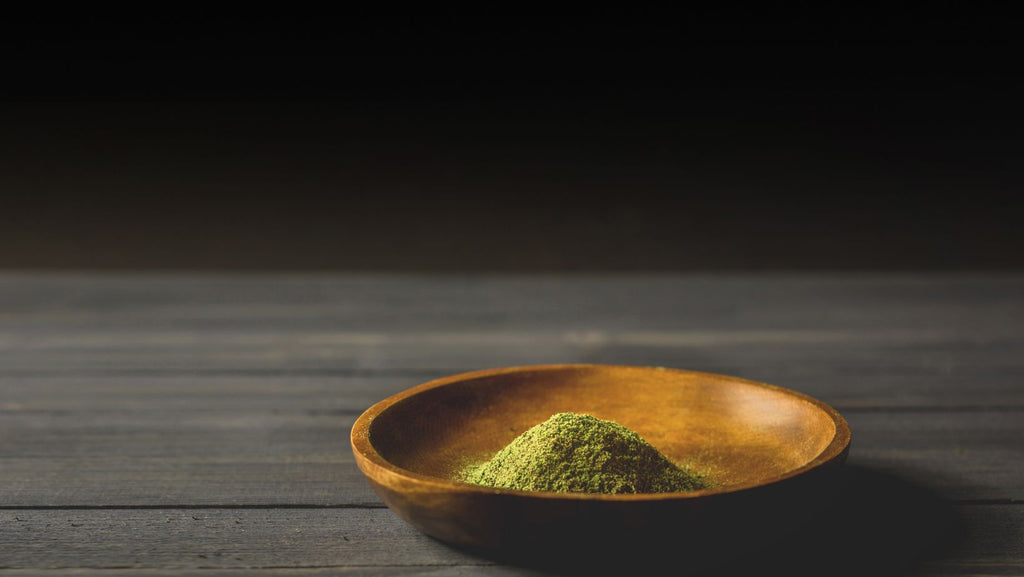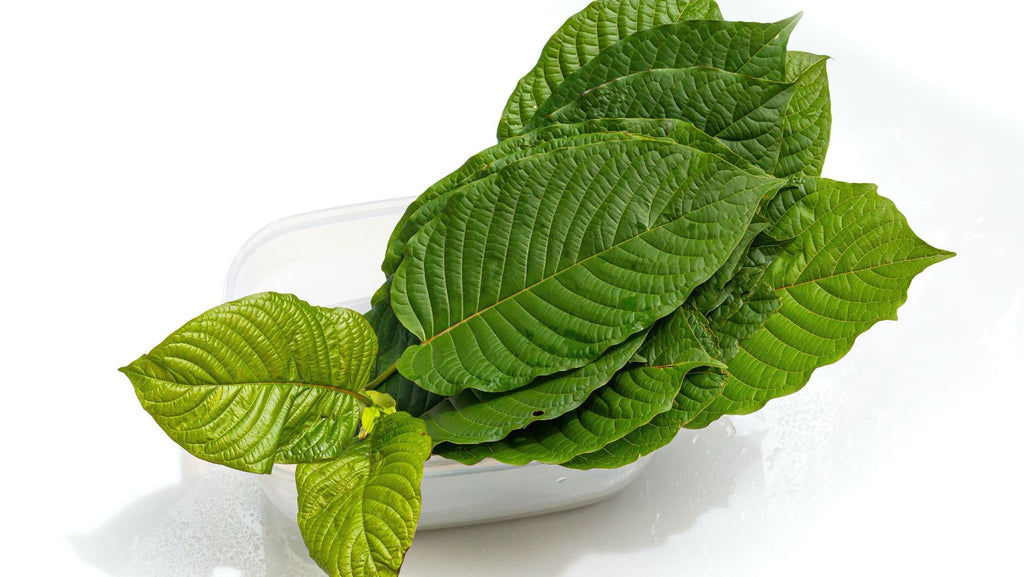
Is Kratom Legal in Missouri? Full Facts
Explore the legality of Kratom in Missouri, its regulations, and what you need to know about purchasing and using it safely.
Is Kratom Legal in Missouri?
Kratom's legality in Missouri is supported by the absence of specific state legislation that would otherwise restrict or regulate its use. Unlike states that have enacted laws to control or ban Kratom, Missouri has not passed any such measures, reflecting a more permissive stance towards this botanical substance.
This situation leaves the regulation of Kratom up to broader federal guidelines, primarily influenced by the 2018 Farm Bill. The Farm Bill federally legalized the cultivation of hemp, which, like Kratom, is often associated with less restrictive regulations compared to controlled substances.

Missouri's approach aligns with the federal perspective, which does not classify Kratom as a controlled substance, thereby not imposing the stringent regulations seen for narcotics or even marijuana. However, this lack of specific state regulation means that the quality and purity of Kratom products can vary, making it important for consumers to source their Kratom from reputable vendors who provide transparent product information and third-party lab results.
As Kratom continues to gain attention, the need for informed consumer practices and potential future state regulations becomes increasingly significant to ensure safety and efficacy..
A Closer Look at Missouri's Kratom Regulations
While Kratom is legal in Missouri, the state has yet to implement formal regulations that standardize the sale or ensure the safety of Kratom products. This absence of regulation can lead to inconsistencies in product quality and raises concerns about consumer safety. Potential adulteration and contamination of Kratom products could pose health risks, prompting discussions about the need for state-level oversight.
Efforts to regulate Kratom in Missouri have been considered, with proposed bills aimed at establishing quality control and consumer safety measures. These proposed regulations would not only help protect consumers but also legitimize the use of Kratom as a safe alternative to traditional medications for managing pain and anxiety.
Factors Influencing Kratom's Legal Status in Missouri
The legal status of Kratom in Missouri is shaped by a variety of factors that range from public perception to formal legislative measures. While Kratom remains legal and largely unregulated in Missouri, several dynamics contribute to the ongoing discussion about its future in the state.
These factors create a complex landscape in which Kratom's legal status could evolve based on new information, changing public attitudes, and developments in state and federal legislation. Here’s a closer look at the key influences that are currently playing a role in shaping the legal framework surrounding Kratom in Missouri:
- Public Perception: The growing acceptance of Kratom as a natural remedy influences its legal status.
- Advocacy and Education: Active efforts by Kratom advocates to educate lawmakers and the public on its benefits.
- Regulatory Considerations: Concerns about safety, age restrictions, and quality control.
- Legal Precedents: Influence of regulations in neighboring states and federal guidelines.
- Healthcare Community Opinions: Differing views among healthcare providers on Kratom’s efficacy and safety.
- Economic Impact: The role of Kratom in the local economy and its potential as a revenue source.
- Ongoing Research: Emerging studies that could sway public opinion and legislative decisions.

These factors together determine the regulatory climate for Kratom in Missouri, influencing everything from consumer access to the way Kratom is marketed and sold within the state. As debates and discussions continue, these elements will play crucial roles in defining the future legal status of Kratom in Missouri
Kratom Legality in Missouri: Comparison with Other States
In Missouri, Kratom (Mitragyna speciosa) enjoys a legal status that allows its citizens to purchase and consume the substance without restrictions. This permissive approach aligns with many other states, yet stands in sharp contrast to those that have imposed strict controls or outright bans on Kratom.
Nationally, the legal status of Kratom varies significantly across the United States. Some states, like Alabama, Arkansas, Indiana, Rhode Island, Vermont, and Wisconsin, have banned Kratom outright, citing concerns over potential abuse and health risks. These states enforce strict prohibitions against possession, sale, and consumption of Kratom, reflecting significant concerns about its safety.
Meanwhile, states like Florida and Colorado allow the use of Kratom but have implemented regulations to govern its sale and use, focusing on consumer safety and quality control. For instance, Florida allows Kratom but some counties have their own specific regulations that might restrict its use.

Furthermore, states such as Oregon and Nevada offer a regulated approach, permitting the use of Kratom with stringent quality and safety checks in place to ensure consumer protection. Nevada, for example, requires all Kratom products to be tested and properly labeled with their contents before they are sold, helping maintain public health standards.
In addition, Georgia and Utah have embraced a proactive stance by enacting the Kratom Consumer Protection Act. This legislation mandates clear labeling and purity standards for Kratom products, aiming to safeguard consumers from contaminated or adulterated Kratom.
Contrastingly, states like Illinois and New York allow Kratom but with some localized restrictions. In Illinois, Kratom is banned in Jerseyville, but legal elsewhere in the state without restrictions on its sale or use. New York has contemplated regulatory measures that would impose a minimum age restriction on Kratom purchases throughout the state, reflecting a cautious approach to its availability.
Comparison Table
|
State |
Legal Status |
Regulations |
|
Missouri |
Legal |
None |
|
Alabama |
Banned |
N/A |
|
Indiana |
Banned |
N/A |
|
Florida |
Legal with Restrictions |
Regulated by counties |
|
Colorado |
Legal with Restrictions |
Regulated sale, no consumption in Denver |
|
Wisconsin |
Banned |
N/A |
Legal Challenges and Advocacy: The Fight for Kratom in Missouri
While currently legal, Kratom's status in Missouri isn't guaranteed as national debates continue about its safety and potential for abuse. Advocacy groups are actively engaging in educating both the public and legislators about the benefits of Kratom, combating misconceptions, and pushing for regulations that ensure safe use rather than prohibition.
Challenges to Kratom's legality typically arise from concerns about its psychoactive properties and the lack of FDA approval, which often leads to public health warnings. Advocates in Missouri are working to counteract these challenges by promoting research and sharing positive personal stories of Kratom's impact on lives, aiming to secure its legal status with reasonable regulations that protect consumers.
Shipping Kratom to & From Missouri
Navigating the complexities of shipping kratom products, like kratom capsules and kratom powders, to and from Missouri requires a careful understanding of both the origin and destination legal landscapes.
Since the legal status of Kratom varies by state and sometimes even by local jurisdiction, ensuring compliance is essential to avoid any legal repercussions. Here are some critical considerations to keep in mind:
- Check Local Laws: Before shipping, confirm the legality of Kratom in the destination state or country to ensure compliance with both local and international laws.
- Packaging Requirements: Proper packaging is crucial not only for compliance with shipping regulations but also to ensure the safety and integrity of the Kratom during transit.
- Labeling Compliance: Clearly label all shipments to accurately reflect the contents as legal, hemp-derived products. This helps in easy identification and prevents legal issues at checkpoints.
- Carrier Policies: Understand that some carriers may have specific restrictions or policies against transporting Kratom. Always verify the carrier's guidelines before shipping.
- Documentation: Include all necessary documentation such as Certificates of Analysis (COAs) that prove the legality and compliance of the Kratom being shipped.
- Be Discreet: Use discreet packaging to minimize attention and prevent potential delays during shipping processes.
- Stay Updated: Keep abreast of the changing laws regarding Kratom in both Missouri and the destination to avoid any outdated practices that might lead to legal challenges.
Safety and Health Considerations for Kratom Users in Missouri
For Kratom users in Missouri, being informed about the effects and risks associated with Kratom use is as important as understanding where to buy it.

To ensure a safe experience, consider the following safety tips:
- Know the Source: Always purchase Kratom from reputable suppliers who offer transparency about their product testing and results.
- Understand Dosage: Start with lower doses to understand how your body reacts to Kratom, and gradually adjust based on your needs and experiences.
- Watch for Side Effects: Be aware of possible side effects like nausea, dizziness, or drowsiness, and adjust usage if such symptoms occur.
- Avoid Mixing: Mixing Kratom with alcohol or other substances is not recommended without consulting a healthcare professional.
- Check for Allergies: If you are new to Kratom, be cautious and monitor any allergic reactions. It's essential to know how your body responds to Kratom.
- Consult Healthcare Providers: Before starting any new supplement, including Kratom, discuss it with a healthcare provider, especially if you have pre-existing health conditions or are on medication.
Navigating Kratom Purchases: Tips for Missouri Residents
Purchasing Kratom in Missouri can be safe if consumers are cautious and informed. Here are some tips:
- Research Vendors: Choose vendors with positive reviews and transparent practices.
- Quality Assurance: Opt for products that have been independently tested for purity and potency.
- Legal Compliance: Ensure that the products comply with Missouri's legal standards for Kratom.
- Understand Strains: Different strains of Kratom have different effects; choose one that matches your needs.
- Price Comparison: Compare prices, but be wary of deals that seem too good to be true—they often are.
- Customer Support: Good customer service can provide guidance and help resolve issues with your purchase.
Conclusion: The Future of Kratom Legality in Missouri
The future of Kratom legality in Missouri will likely be influenced by ongoing national discussions and research into its effects and benefits. As public opinion and scientific understanding evolve, Missouri may see changes to its regulations, potentially leading to more structured controls that ensure safety without imposing outright bans.

Keeping informed and involved in advocacy can help shape these outcomes in favor of preserving access to Kratom for those who benefit from its therapeutic properties.
FAQs
Can I grow Kratom plants in Missouri?
Growing Kratom plants in Missouri is not prohibited, but it's challenging due to climate differences from Southeast Asia.
Is it legal to drive after consuming Kratom in Missouri?
While not illegal, driving under the influence of Kratom is not recommended due to its sedative effects at high doses.
Are there age restrictions for buying Kratom in Missouri?
No state-specific age restrictions exist, but reputable vendors may set an age limit of 18 or 21.
Can I take Kratom on a plane if I'm flying out of Missouri?
Yes, as long as you are flying to a destination where Kratom is legal.
How can I participate in advocacy for Kratom in Missouri?
Join local or national Kratom advocacy groups to stay informed and participate in lobbying efforts.
What should I do if I experience adverse effects from Kratom?
Discontinue use immediately and consult a healthcare provider if adverse effects are severe.
Is Kratom regulated by the FDA in Missouri?
Kratom is not FDA-approved, and while legal in Missouri, it lacks FDA regulation.
Can Kratom be prescribed by doctors in Missouri?
Kratom is not recognized as a prescription medication and cannot be prescribed by healthcare providers.
Share

